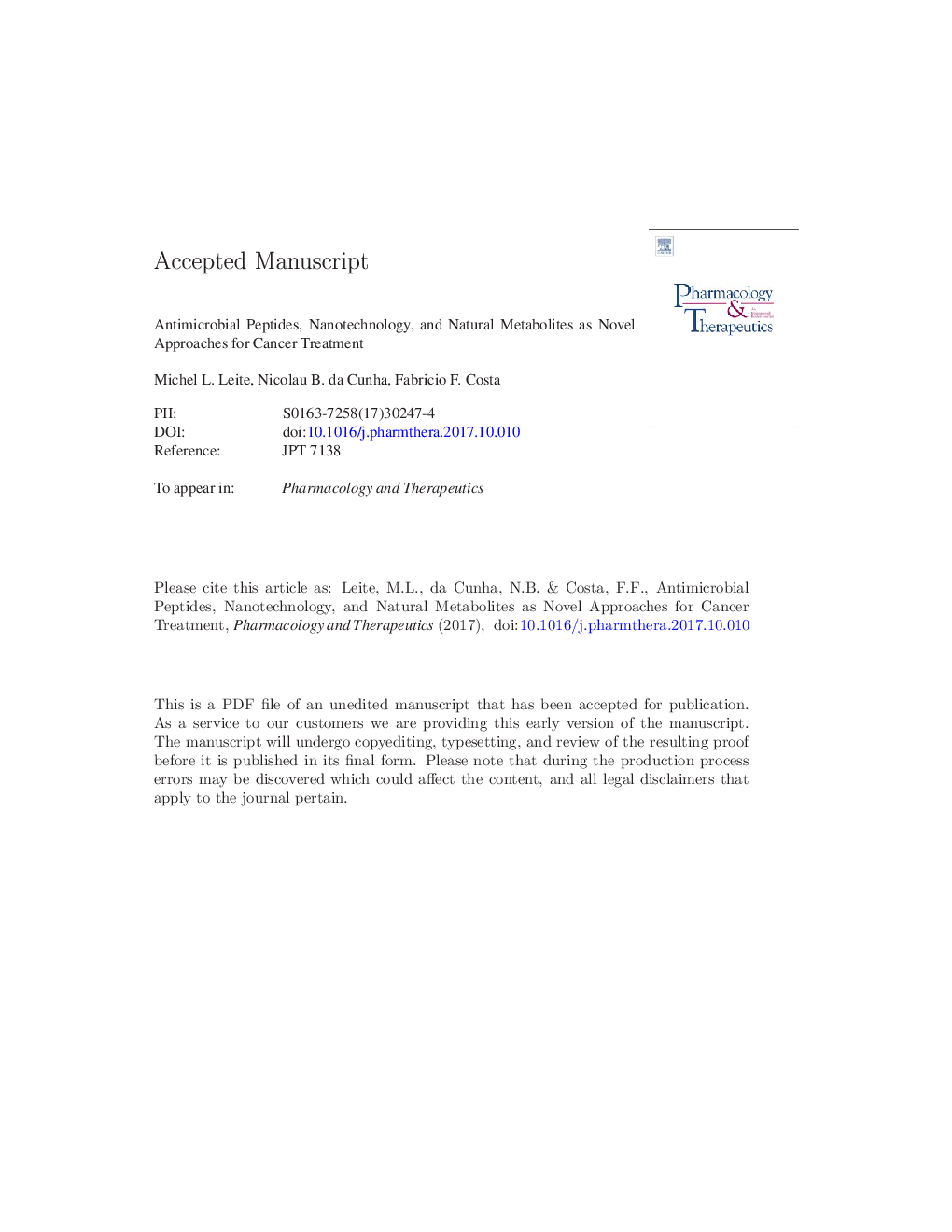| Article ID | Journal | Published Year | Pages | File Type |
|---|---|---|---|---|
| 8536910 | Pharmacology & Therapeutics | 2018 | 88 Pages |
Abstract
Despite the advances in tumor identification and treatment, cancer remains the primary driver of death around the world. Also, regular treatments for the disease are incapable of targeting particular cancer types at different stages since they are not specifically focused on harmful cells since they influence both solid and tumor cells, causing side effects and undesirable symptoms. Therefore, novel strategies should be developed to treat this disease. Several efforts have been made in this direction to find more effective alternatives to cancer treatment, such as the use of antimicrobial peptides (AMPs) with antitumoral activity, nanocarriers and natural compounds from a variety of sources. AMPs are more specific to their targets because of electrostatic interaction between AMPs and the cancer cells' plasma membrane. Nanocarriers may be used for the delivery of non-soluble drugs, which are poorly stable or require a controlled release. In addition, natural compounds have been a rich source of anti-cancer agents for decades. In this review, these three approaches will be discussed, showing recent advances and advantages of using these strategies to treat cancer as well as the combination of these approaches increasing anticancer activity.
Related Topics
Health Sciences
Pharmacology, Toxicology and Pharmaceutical Science
Pharmacology
Authors
Michel L. Leite, Nicolau B. da Cunha, Fabricio F. Costa,
